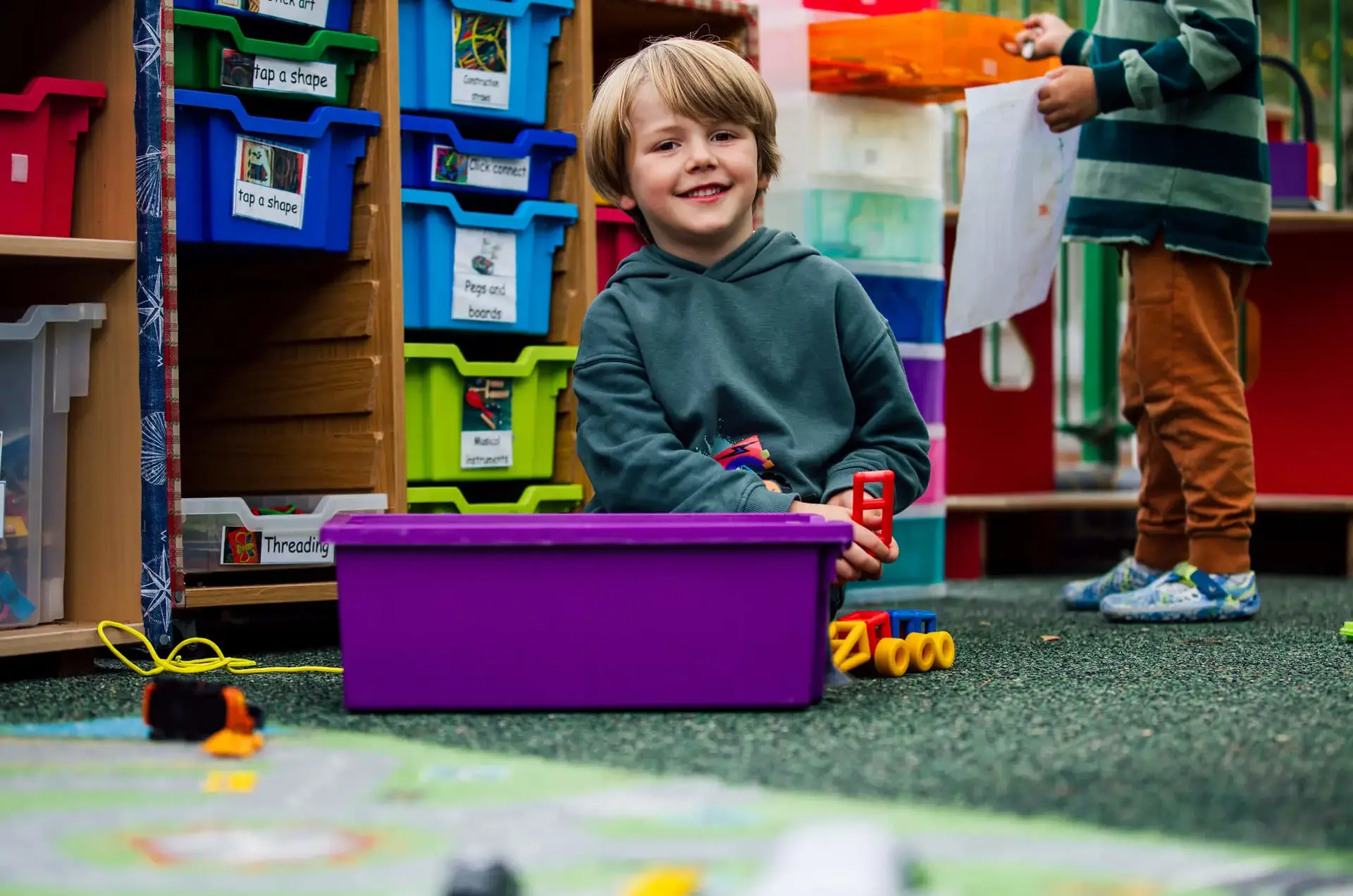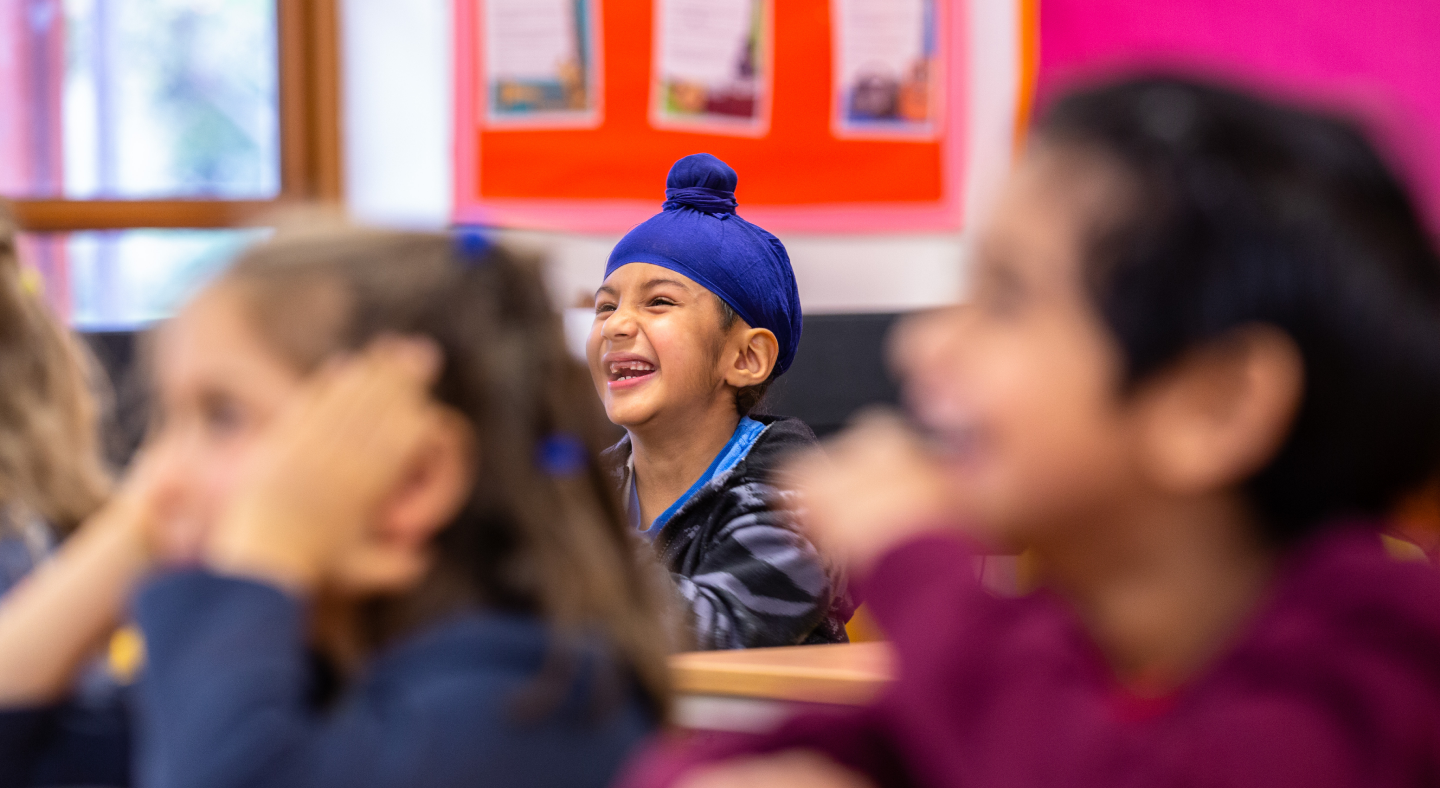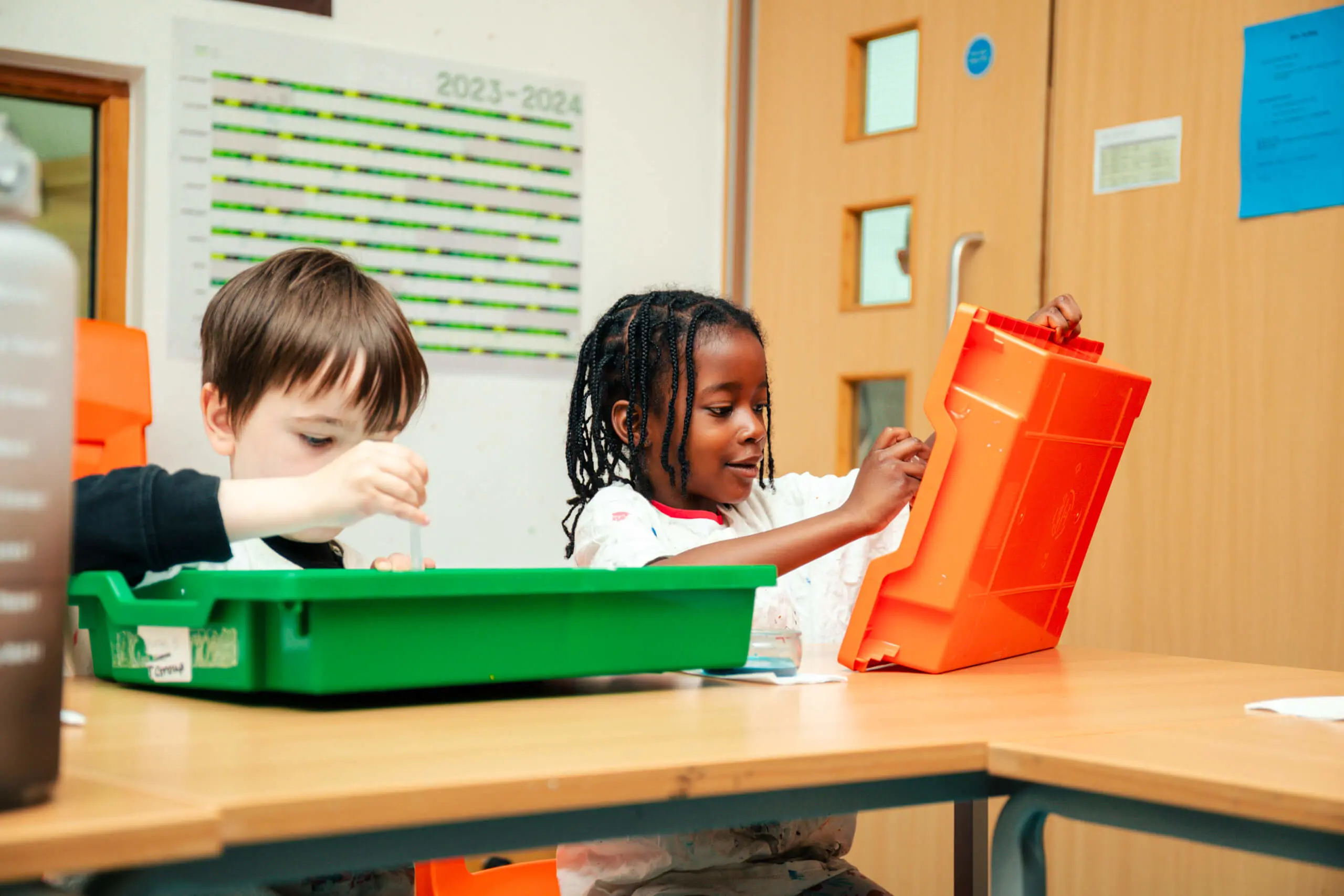Junior School Special Educational Needs and Disabilities (SEND)
St Chris takes a graduated approach to SEND support.
Throughout our entire SEND provision, we take a graduated approach to SEND support. This follows a continuous four-step process, as follows:
| 1 | 2 | 3 | 4 |
|---|---|---|---|
Assess |
Plan |
Do |
Review |
The basis of this framework starts with inclusive high-quality teaching. In the St Chris Junior School, our teachers build unparalleled working relationships with our students and youngest learners.
Our student-teacher ratio means that students have access to individualised support in our standard classroom setting. Because of this close-knit working relationship, our teachers and teaching assistants can easily identify if a child is not making expected progress either in lessons or overall. From this point, the four-step graduated approach starts until the child progresses and SEND support is no longer needed.
How do we monitor SEND at St Chris?
| Early Years |
|---|
|
In our Early Years provision, WellCom Speech and Language baseline assessments are administered to students to ensure their speech and language abilities are age-appropriate. Where a child does not meet their expected speech and language ability, this is flagged to the SEND team to investigate further. We aim for an inclusive approach to education, so never let a child who is struggling or need further support feel excluded from their classroom and peers. Initially, our SEND team recommend in-class strategies to aid speech and language as well as intervention and 1:1 with Speech and Language Therapy if required. If a child requires additional SEND support that was not flagged upon entry, there may be an additional charge. |
| Year 1+ |
|
We benchmark students’ individual learning progress from Year 1 via reports from the class teacher. Progress is measured by formative assessment and the results are linked to reading bands and comprehension levels and allows us to understand a child’s individual learning patterns and progression rates. Teachers then meet termly with the Head of Junior School, Katie Wright, and a member of the SEND team, to discuss individual student progress. This is an opportunity for teachers to flag up any recent concerns or developments recognised by themselves or another member of the Junior School faculty. These meetings aim to ensure we offer consistent and proactive support to all students regardless of their level of ability, measuring on progress. The Junior School also screens our Junior School students by undertaking regular spelling tests which help us to identify any learning difficulties including SpLD Dyslexia. Writing assessments are always aligned with the topic of study and are therefore seen as a natural part of the curriculum. Students do not feel the pressure of being tested, nor feel competitive about this. |
| Years 5 and 6 |
| In the final years of the Junior School, students are assessed yearly in October for single word reading and spelling and are given a standard score. |

“More child-led, nurturing, works to support individual needs. Tangible learning, broad engaging curriculum.”
Parents' Survey, 2022
How does St Chris evaluate the need for intervention?
The graduated approach is a multi-step continuous process which is broken down below:
- A student is not making expected progress
- This is flagged up by a class teacher or parents in termly Progress Meetings
- There is an open-door policy between our SEND team and staff
- Following the report, there is a discussion with the class teacher and parents
- A member of the SEND team observes the student in class
All SEND assessments are carried out by either a member of the St Chris SEND team who are qualified to do so, or by an external clinical psychologist, educational psychologist or specialist teacher.
Our assessment objectives target a student’s areas of need, and our SEND team selects an appropriate assessment method. Our approach isn’t to over-test a student but rather to have them undertake the relevant assessments to benchmark their abilities. The following may be addressed:
- Underlying ability
- Single word reading
- Sentence comprehension
- Working memory
- Speed of processing
- Phonological awareness
- Mathematic skill
- Spelling
- Writing skills
What does SEND intervention look like at St Chris?
We may put various support measures in place to support our students who are identified as having special educational needs or disability (SEND). This may be an adaptation to the classroom environment, including providing visual materials for learning and offering pre-learning. Our School may also take advice from specialist Speech and Language Therapists to support students in a universal setting.
Our School also holds ‘Booster Groups’, an opportunity for students to work collaboratively outside of class while being supported with their learning. This extra time allows many of our SEND students to thrive in the classroom. These Booster Groups are supported by our Junior School Teaching Assistants.
Teaching Assistants also deliver Units of Sounds, a computer resource designed to aid reading and spelling for young students. Our staff also use Wordshark to generate targeted spelling tests.
We also offer a range of 1-1 support for students with SEND. This includes time spent with a speech and language therapist, the SEND team, or with a specialist teacher.
Specialist Teaching at St Chris
Jen Rigby is our specialist teacher in the Junior School. She holds a SpLD (Dyslexia) Level 5 and has in-depth knowledge of current theories surrounding dyslexia. Jen assesses, plans, and delivers specialist teaching programmes across the Junior School to students with literary difficulties.
Our SEND team also work with children with difficulties in mathematics and social interactions, with an understanding of how to work with students who have co-occurring difficulties such as SpLD Dyslexia, SpLD Developmental Coordination Disorder, SpLD Dysgraphia, SpLD Dyscalculia, ASC, and ADHD.
Sessions vary between 15 minutes and 1 hour a week, flexed to what is best for the learner and their timetable. Most sessions are 1-1 unless it is felt there is a benefit of holding a group session. These sessions are most often held in the dedicated SEND classroom in the Junior School and include multi-sensory activities. There is also a dedicated SEND computer with accessibility software and specific programmes to aid literacy skills.
As with all our students, the SEND register is regularly monitored to ensure the information stays up to date. Parents are consistently communicated with before, during, and after a child receives SEND support.







